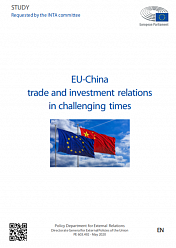Ahead of Chinese New Year, branch manager of the multimodal operator’s Xi’an office, Andy Luo, said that inquiries for rail freight bookings had surged 40% in the preceding two months, and that for certain services this was generating a wealth of new business.
A spokesperson for the company told The Loadstar: «Less-than-container load rail freight has experienced a sharp increase in volumes, 30% in January compared to last year.
«For full container loads, we have received many inquiries, but this has not yet translated into a substantial increase in new business. But it is important to note rail freight costs, currently around $6,000-7,000 are close to the increased rates of ocean, which are about $5,000.»
The spokesperson said that the Red Sea crisis was prompting this switch in modes, however, with conflict in Ukraine, the viability of rail services was not uniform.
Major EU and US customers are hobbled by the ongoing sanctions regime which blocks their use of routings through Russia, and a Dimerco-proposed Black Sea alternative was rejected due to its «40-day longer transit time and 50% cost-increase» on Russia routings.
«However, for SMEs based in Asia or other developing regions, the block train service from China to Europe remains a feasible option,» the spokesperson continued.
«Taking Xi’an as an example, in 2023, China-Europe Express from Xi’an saw a total of 5,351 departures, a 15.3% year-on-year increase maintaining its top position in China. Furthermore, the Xi’an Railway Company plans to increase departures to over 7,000 trains in 2024.»
With the Chinese holiday just weeks away, Dimerco said that rail spot freight rates were continuing to rise, although booking prices varied depending upon suppliers.
In a monthly freight report produced by the company, «sufficient slots» remained on its Xi’an-Duisburg routing, but its express services were now sold out, with trains being dispatched on a daily basis until the middle of the month.




